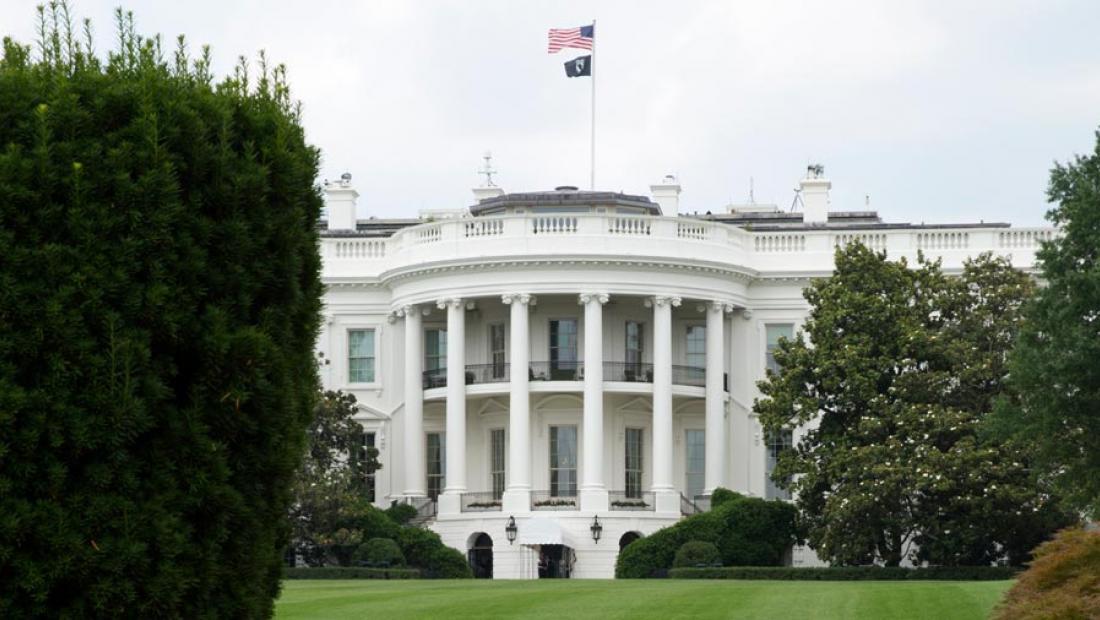Tech Groups Balk at Trump ICT Tariffs

The smarter way to stay on top of broadcasting and cable industry. Sign up below
You are now subscribed
Your newsletter sign-up was successful
Tech groups were registering their concerns Friday (June 15) over the Trump Administration's decision to proceed with tariffs on Chinese imports, including information and communications technology (ICT) and products like computers, smartphones, servers, routers, and computer chips.
"Tariffs go against the interest of the American people," said Consumer Technology Association SVP Michael Petricone. "The economy will respond to the president's tariff agenda by increasing the cost of goods that people use every day, harming the U.S. economy and sinking the stock market. Imposing tariffs on Chinese goods could cost Americans hundreds of thousands of jobs. The $50 billion in tariffs being imposed today is no exception. And the anticipated retaliation by China will escalate the U.S.-China trade war and reduce U.S. gross domestic product by nearly $3 billion, based on a CTA and National Retail Federation (NRF) study on the initial White House tariff proposal.""In light of China’s theft of intellectual property and technology and its other unfair trade practices, the United States will implement a 25 percent tariff on $50 billion of goods from China that contain industrially significant technologies," the President said Friday. "This includes goods related to China’s Made in China 2025 strategic plan to dominate the emerging high-technology industries that will drive future economic growth for China, but hurt economic growth for the United States and many other countries. The United States can no longer tolerate losing our technology and intellectual property through unfair economic practices.
"These tariffs are essential to preventing further unfair transfers of American technology and intellectual property to China, which will protect American jobs," he said.
The move comes only days after the President announced that Commerce would be loosening sanctions on Chinese telecom supplier ZTE because those sanctions threatened Chinese jobs.
"These tariffs are a mistake," said TechNet president Linda Moore of the 25% levy. "The U.S. and China are now firmly on a path to a trade war, one that will ultimately hurt U.S. consumers, workers, and businesses of all sizes. We have countless examples throughout history that prove tariffs do not work, and one recent study shows that tariffs now will slow U.S. economic output by $322 billion over the next decade."
Related: Why Tarifs on Chinese ICT Would Hurt U.S. Economy
That concern was echoed by the Information Technology and Innovation Foundation.
The smarter way to stay on top of broadcasting and cable industry. Sign up below
"While it’s well past time to confront China’s egregious mercantilism, the administration should be careful not to inadvertently put U.S. productivity growth in jeopardy," ITIF said. "An increase in prices brought about by tariffs on capital goods would reduce investment, thereby lowering already anemic rates of productivity growth. Rather than impose tariffs on capital goods, the United States should rely on other other measures while also working with like-minded allies to counter unfair Chinese trade practices."
ITIF points out that the tariffs would hurt U.S. ICT companies that rely on some components from China, and argues that the move would not result in repatriating ICT production.
“We are extremely disappointed that the Administration has opted to employ this trade remedy,” said Telecommunications Industry Association SVP Cinnamon Rogers. “The Section 301 investigation was undertaken in response to China’s unfair trade practices. But the Administration’s response stands to hurt one of the most innovative sectors of the American economy, making it more expensive to manufacture advanced telecom products here in the United States. This could result in job losses as well as higher costs for consumers.”
“These tariffs may be aimed at China, but they will result in collateral damage that targets US companies and consumers," said Computer & Commmunications Industry Association President Ed Black.“We have argued for the need to address trade barriers to U.S. tech products and services and also expressed concern about China’s forced technology transfer and other discriminatory practices. But these tariffs will not fix those problems, and would instead create other complications and invite retaliation from China.”
Sen. Mark Warner (D-Va.), vice chairman of the Senate Intelligence Committee, wasn't so much criticizing the tarriffs as the President's peripatetic approach to checking Chian's unfair trade practices.“I share the President’s concerns about China. For years, Chinese companies pushed and enabled by the Chinese government have cheated American workers and stolen valuable intellectual property from U.S businesses with few repercussions," said Warner. "While we simply cannot let China’s unfair trade practices go unchecked, this President’s erratic approach to resolving this issue gives me pause. His Administration’s friendliness toward ZTE, in spite of warnings from his own top intelligence officials that the telecom company poses a national security threat, is particularly concerning. Instead of taking steps that antagonize our allies and threaten the well-being of Virginia’s agricultural community, the President should focus on building international support to apply greater pressure on Beijing and end these unfair trade practices once and for all.”
Contributing editor John Eggerton has been an editor and/or writer on media regulation, legislation and policy for over four decades, including covering the FCC, FTC, Congress, the major media trade associations, and the federal courts. In addition to Multichannel News and Broadcasting + Cable, his work has appeared in Radio World, TV Technology, TV Fax, This Week in Consumer Electronics, Variety and the Encyclopedia Britannica.

